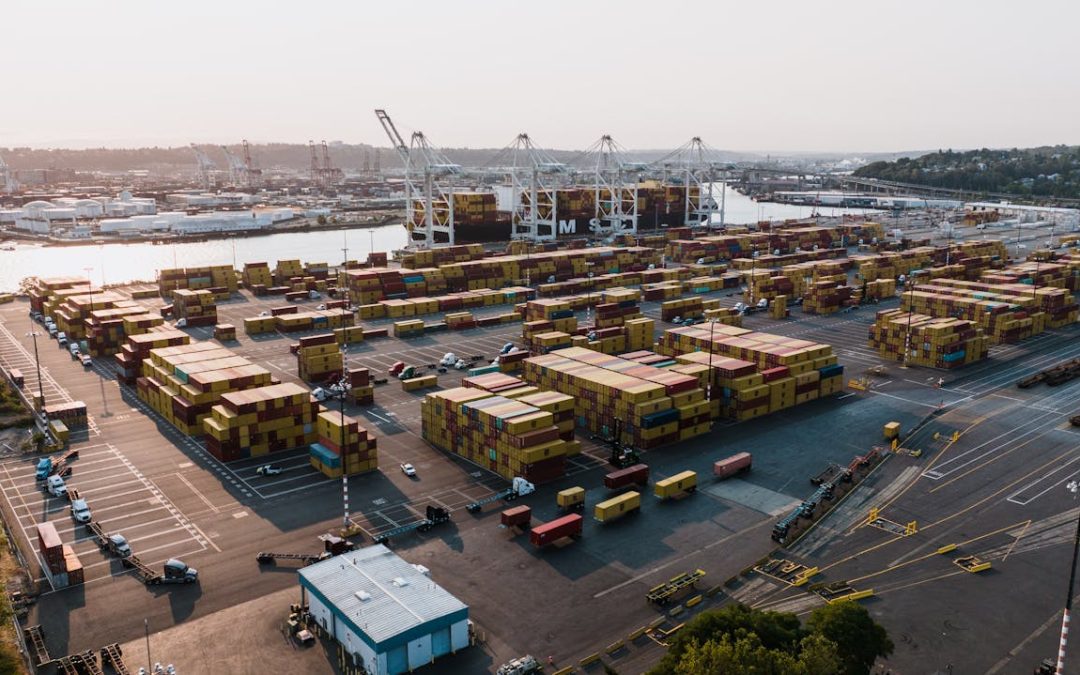All businesses are struggling with costs in the current climate. And savvy business owners are always on the lookout for ways to reduce overheads without sacrificing their quality.
Is it possible? Can you reduce freight costs without cutting corners?
We’re here to say YES. There are ways we can all work together to optimise costs while ensuring everyone gets a great service.
Let’s get into it.
Planning Your Shipping
The first step in making shipping cost reductions is to plan ahead. The highest freight prices usually come in for shipments made last minute.
Now, hear us out. We know it’s not always avoidable. Sometimes, you need to get that cargo to the buyer yesterday.
However, giving clients long lead times means you set their expectations, give them more choice of mode of transport, and take advantage of lower costs.
To find the most affordable freight forwarding solutions, first analyse your shipping needs.
Cargo Type
Heavier or awkwardly sized goods can be more costly to ship because they often require more time and resources to transport. Some cargo will need specialised equipment or infrastructure, such as refrigerated storage solutions, and the availability and running cost of these can impact your quote.
Fragile goods, valuable goods and hazardous goods can also incur higher freight rates because they can come with special handling and packing requirements.

Origin/Destination
Where cargo is leaving from and being transported can affect freight rates for several reasons. The geography of the trip needs to take into account available shipping lanes, port infrastructure, length of journey and even political factors.
Timeframes
How quickly do you need to get your goods to their destination? Perishable goods will have a tighter timeframe than clothing, toys or washing machines, for example.
Special Requirements
Some commodities will have restrictions, regulatory considerations, and tariffs that may result in higher freight rates. Importing and exporting livestock, for example, has very specific legal requirements that must be factored in; even the administration involved can incur extra costs.
Once you have gathered this information, you and your chosen forwarder can investigate the most cost-effective logistics solutions.
Explore Different Modes Of Transport
How you ship your cargo plays a key role in the cost of doing so.
Understanding your shipping needs will help you ascertain the best transportation method. Often it can be as simple as weighing up cost, timeframe and location to give you the best possible options.
Sea Freight
Transporting goods over the ocean is ideal for large volumes and long distances. It is the most economical option for many shippers globally.
Though it tends to work out cheapest, sea freight also comes hand in hand with longer transit times compared to other freight modes.
Air Freight
Sending goods through the atmosphere is hands down the fastest option, making it the best solution for urgent deliveries or perishables. It does come with a higher cost, however, making it impractical for many standard shipments.
Road Freight
Road freight provides speed and flexibility for shorter distances or remote locations and delivers a door-to-door service that is favourable for many shippers.
Though road freight offers potentially cost-effective freight solutions for smaller shipments, it’s important to consider potential traffic delays.
Rail Freight
Rail freight is extremely efficient for long-distance journeys and large volumes of cargo, offering a much lower carbon footprint compared to other modes of freight.
Choosing rail freight does, however, limit shippers because you are bound by established rail networks.

Multi-Modal
Shipping solutions that make use of two or more modes of transport are called multi-modal. Transporting goods in this way can optimise speed and infrastructure and bring overall prices down, resulting in freight forwarding cost savings.
Remember: you’ll need an expert to guide you through a multimodal logistics solution!
Consolidation and Strategic Packaging
Another way of working towards shipping cost reductions is to consider your shipping practices themselves.
Can you ship goods less frequently? This might mean storing goods, which comes with a potential extra cost, but that may be cheaper than repeat shipments.
If you do need to ship frequently, can you get a better deal for your ongoing business? Freight forwarders sometimes book shipment ‘slots’ that they have to fill, so it’s worth having a chat with your forwarder to see if you can negotiate a better rate.
Freight forwarding cost savings can also be made by changing up your packaging practices. Over-zealous packaging can add to the chargeable weight of your shipment, which bumps up costs. Consider whether you can change your packaging products or reduce the amount you use without risking damage to your cargo.
And look at reusable options! Reusable packaging is designed to be long-lasting, meaning the cost per use is both lower and better for the environment.
Check out this blog for more about eco-friendly freight forwarding.
Time Your Shipping
Much like the tourism industry, freight forwarding experiences off-peak times, too.
Based on years of data, we can easily see that August through December are the busiest months of the year. During these months you’ll find occasions such as the back-to-school shopping rush, Black Friday and Christmas, where consumption and demand skyrockets. Chinese New Year also puts demand on timescales for many businesses due to the two-week shutdown it involves.
To ensure you keep loyal customers happy and get your cargo where it needs to be in plenty of time, rigorous planning is necessary. It can help to make a note of important annual dates and occurrences using handy calendars just like ours.
Can you make extra shipments during off-peak season so that your business is under less strain during busy shipping periods?
The Value Of A Reliable Freight Forwarder
Businesses importing and exporting goods domestically and internationally can benefit from working with freight forwarders. This is because forwarders can leverage their expertise and industry partnerships to secure competitive rates. A good freight forwarder will have specialist knowledge of customs brokerage, route optimisation and warehousing solutions, all of which can reduce your expenditure.
It is good practice to develop strong relationships with freight forwarders so that you can access potential discounts and the gold-standard service that comes with them knowing and understanding your business operations.
Don’t Choose Cheap
It’s important to remember that whilst low freight rates sound fantastic, reliable service and peace of mind will serve you better. Lots of freight companies promise cheap rates, but if THEY cut corners, you might find yourself in a bind if something goes wrong.
There’s also a danger that you’re liable for hidden charges when you opt for unreliable freight forwarders, such as unexpected fees, delays and damages.
Affordable Freight Forwarding Isn’t Complicated
It’s true that a freight quote involves a lot, but with the help of a friendly freight forwarder and some planning, you can achieve cost-effective logistics solutions.
Start by getting a handle on your shipping needs, and you’ll soon find out what you can cut back on.
Contact Millennium today for no-nonsense advice and a friendly ear.

